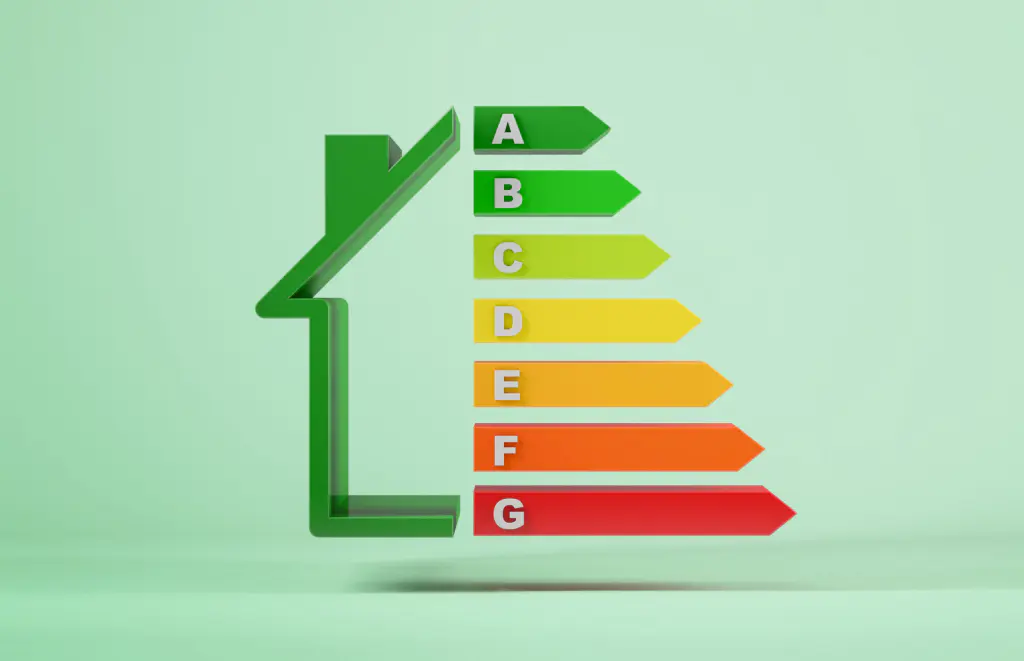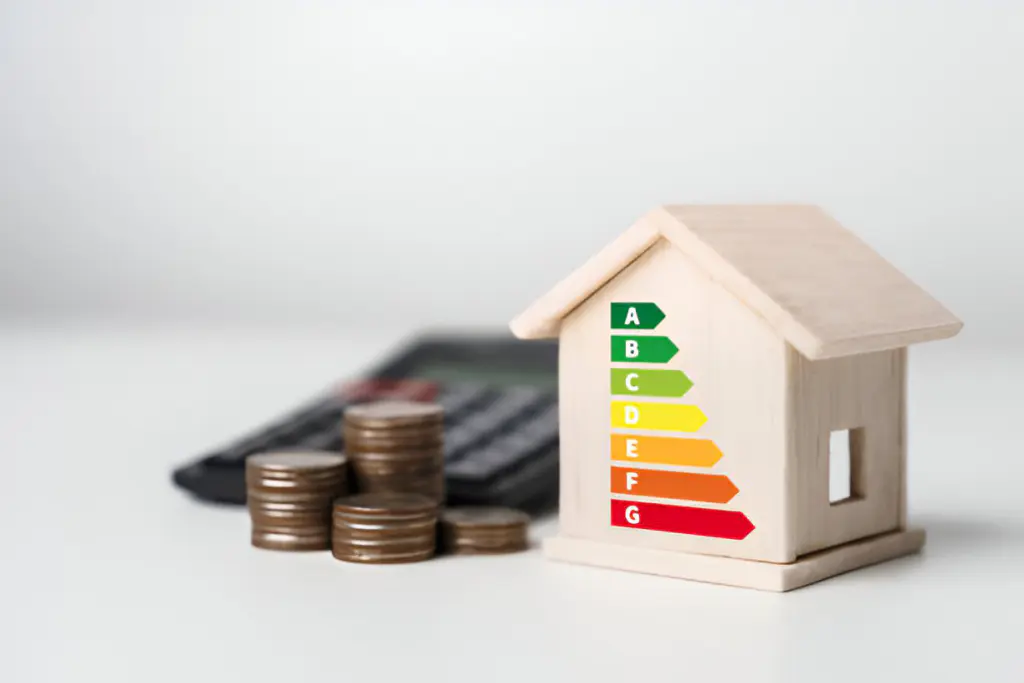Navigating the maze of property ownership, there’s one gem often overlooked – the Energy Performance Certificate (EPC) rating. As a property owner, I’ve learned it’s more than just a letter on a piece of paper; it’s an indicator of your property’s energy efficiency, which can impact everything from cost savings to legal obligations.

But what exactly does a ‘good’ EPC rating look like? Is it merely the highest grade, or is there more to it? Stay with me as we embark on a journey to unravel the true value of a good EPC rating.
Understanding EPC Ratings
EPC, short for Energy Performance Certificate, provides a rating for a property’s energy efficiency, ranging from A (most efficient) to G (least efficient). This rating is a significant tool in understanding the energy efficiency of a property, which carries direct cost implications. An efficient property, ranked A or B, can save a homeowner or tenant substantial amounts in energy bills over time.
The EPC rating also has a substantial environmental impact. Properties with higher efficiency ratings contribute less to harmful carbon emissions, promoting a more sustainable living environment. This is crucial in today’s world, where there’s a pressing need for sustainable practices.
Moreover, it’s important to note the legal requirements surrounding EPC ratings. In many regions, a property must meet certain EPC criteria to be legally rented out. For instance, in the UK, rental properties must have an EPC rating of E or higher.
Lastly, EPC ratings offer significant decision-making benefits. They provide prospective buyers or tenants with vital information about a property’s energy performance. This can influence decisions about whether to invest in a property, what renovations might be needed, or how to budget for future energy costs. Understanding EPC ratings is thus fundamental to making informed property decisions.
Significance of EPC Ratings
Undoubtedly, the EPC ratings carry significant implications, especially when it comes to making decisions based on energy efficiency of a property. A high EPC rating, like an A or B, denotes a highly efficient property, leading to cost savings in energy bills. On the flip side, a lower rating indicates less efficiency, which might lead to higher energy costs.
Further, the EPC ratings also reflect the environmental impact of a property. A property with a high rating contributes less to carbon emissions than its lower-rated counterpart. Hence, EPC ratings provide prospective buyers or tenants with an insight into the property’s carbon footprint, aiding in making environmentally responsible decisions.
Now, let’s consider the legal requirements. In many jurisdictions, it’s mandatory for properties to have an EPC rating before they are rented or sold. This ensures prospective tenants or buyers are informed about the property’s energy performance.
Lastly, EPC ratings can influence property desirability. A property with a high EPC rating can be more attractive to prospective buyers or tenants due to the potential energy cost savings and lower environmental impact.
| EPC Ratings | Significance |
|---|---|
| High (A, B) | Energy efficiency, cost savings, high property desirability |
| Low (F, G) | Higher energy costs, higher environmental impact, legal implications |
EPC Ratings and Property Value
The value of a property can be significantly influenced by its EPC rating, highlighting the crucial role of energy efficiency in real estate valuation. As an investor, it’s essential to understand that a high EPC score can make a property more appealing to potential buyers or renters, thereby driving up its market value. This is a reflection of a growing market trend: a preference for energy-efficient homes that have a lesser environmental impact and can result in lower utility costs.

In terms of property investment, an energy-efficient home can be a prudent decision. Not only can it offer cost savings in the long run, but it also has the potential for higher resale value due to its sustainability impact. However, it’s worth noting that improving a home’s EPC rating isn’t always easy or inexpensive.
Home improvements, such as upgrading insulation, installing energy-efficient windows, or adding renewable energy sources like solar panels, can help increase a property’s EPC score, but these require upfront investment. Therefore, it’s important to balance the cost of these improvements with the potential increase in property value they may bring.
Impact of Low EPC Ratings
Navigating the implications of low EPC ratings can pose significant challenges for property owners and investors. The first consideration is energy wastage. Buildings with low EPC ratings are less energy efficient, leading to higher energy consumption and increased costs.
Tenant preferences are also shaped by EPC ratings. Today, many tenants prefer properties with higher EPC ratings due to the potential for lower energy bills and the comfort of living in a more energy efficient home.
The financial implications of low EPC ratings can’t be overlooked. A low rating can negatively impact the property’s market value and rental income. It’s also worth noting that properties with an EPC rating of F or G can’t be rented out in certain jurisdictions due to regulatory compliance, leading to potential losses for landlords.
Improving Your EPC Rating
Boosting your property’s EPC rating not only enhances its market appeal but also leads to significant energy savings and a reduced carbon footprint. Some energy saving tips include reducing heat loss by insulating your loft, walls and floors, using energy-efficient light bulbs, and installing a more efficient boiler.
Efficiency upgrades, such as installing double glazing windows or a new heating system, can make a huge difference in your property’s EPC rating. Such changes aren’t only eco-friendly, but also cost-effective solutions in the long run, as they can significantly lower your energy bills.
Rating improvement can be achieved by small changes as well. For instance, simply using thermostatic radiator valves can better regulate your heating system and potentially improve your EPC rating.
Lastly, remember to keep your EPC up-to-date. An old EPC mightn’t reflect recent improvements you’ve made to your property. When you implement these changes, it’s worth getting a new assessment to ensure your EPC rating accurately represents your property’s current energy efficiency level.
Improving your EPC rating is a worthwhile investment for your wallet, your property’s appeal, and the planet.
Strategies for Higher EPC Ratings
To achieve higher EPC ratings, there are several effective strategies you can put into practice. Energy efficient upgrades are a vital first step. This might include installing double glazing, upgrading your insulation, or swapping out old appliances for more efficient models. Such efficiency improvements not only contribute to rating enhancement but can also lower your energy bills.
Performance optimization is another key factor. This involves ensuring your heating and cooling systems are working as efficiently as possible. Regular servicing and maintenance can help with this. If your system is particularly old, you might consider replacing it with a more energy-efficient model.
EPC Rating Ranges Explained
Let’s delve into the different EPC rating ranges, and what each of them signifies in terms of energy efficiency. The rating breakdown begins with A, representing the most energy-efficient properties. These homes consume less energy, leading to lower running costs. They’re also better for the environment, as they emit fewer greenhouse gases.

Moving down the scale, each subsequent letter signifies less efficiency. A ‘B’ rating is still highly efficient, but ‘C’ and ‘D’ rated properties might need some improvements to boost efficiency. The cost implications here start to rise, as more energy is required to heat and power these homes.
‘E’, ‘F’, and ‘G’ ratings indicate significant inefficiency. These properties consume high amounts of energy, leading to larger bills and a more substantial environmental impact. Improving efficiency in these homes might involve substantial work and investment, but the long-term benefits can make it worthwhile.
Understanding EPC rating ranges is crucial when looking at properties, whether you’re a buyer, a tenant, or a landlord. By appreciating the cost implications and environmental impact of each rating, you’ll be better equipped to make informed decisions.
Recommendations Based on EPC Ratings
Having unpacked the meanings and implications of different EPC ratings, we can now discuss specific recommendations to improve these ratings and make properties more energy-efficient.
Firstly, energy saving tips are vital. For properties with lower ratings, simple changes like switching to energy-efficient light bulbs or improving insulation can make a significant difference. For higher-rated properties, consider investing in more advanced solutions, like solar panels or wind turbines.
Efficiency measures are a must. These include timely maintenance of heating and ventilation systems, and using energy-efficient appliances. Such measures not only improve your rating but also reduce energy bills.
Rating improvements often go hand-in-hand with property enhancements. Making your property more energy-efficient can increase its value, making it more enticing to potential buyers or renters.
Sustainable upgrades, such as installing double-glazed windows or insulating walls and roofs, can significantly improve your EPC rating. These upgrades not only make your property more comfortable but also contribute to reducing your carbon footprint.
Frequently Asked Questions
How Often Should an EPC Rating Be Updated?
I’d recommend updating an EPC rating every 10 years, or after significant energy improvements. EPC regulations change, so it’s crucial to hire a qualified assessor. Costs vary, but it’s a worthwhile investment.
Do All Types of Properties Require an EPC Rating?
Yes, most properties require an EPC rating, including commercial properties and rentals. However, there are EPC exceptions and exemptions, so it’s not always mandatory. Always check specific regulations to be certain.
What Role Does a Property’s Age Play in Its EPC Rating?
A property’s age significantly impacts its EPC rating. Historic preservation may cause energy inefficiencies, while modern construction usually has advantages like better insulation. Retrofitting older buildings can improve their rating, considering property lifespan too.
Can an EPC Rating Be Challenged or Disputed?
Yes, an EPC rating can be challenged. If there are rating discrepancies, disputing methodology with EPC assessors is possible. Legal implications exist, so following complaint procedures carefully is crucial to address any concerns effectively.
Are EPC Ratings Internationally Recognized, or Do They Vary by Country?
As an expert, I’m aware that EPC ratings aren’t internationally recognized. Standards comparison, regulations, and interpretations vary by country. Some global EPC adaptations exist, but differences in country specific EPCs still remain.
Conclusion
In a nutshell, a good EPC rating is crucial for property owners. It boosts property value, aids in legal compliance, and drives down energy costs.
More importantly, it helps us contribute to saving our planet. Remember, improving your EPC rating isn’t a sprint, but a marathon. With consistent efforts and smart strategies, you can achieve a higher rating, making your property more desirable and eco-friendly.
It’s high time we all worked towards a greener, more sustainable future.









